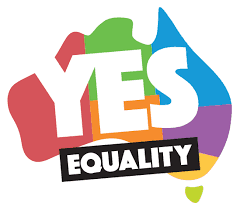Learning to Resolve Conflict, Before the Big Day
(Courtesy theressatruecolour.blogspot.com)
- Although every couple can benefit from pre-marital education, it may be particularly benificial to you and your partner if you have or continue to experience any of the following:
- Parental divorce
- Physical or verbal abuse by parents
- Cultural or religious differences
- Regular conflict over unresolved issues
- Conflict involving negative ‘put downs’
- Withdrawal and avoidance around decision making
- Unwillingness to talk about feelings
- The only serious relationship both partners have had
- A drug or alcohol addiction
- Unrealistic expectations of each other
Regulating Your Expectations
Every couple hopes their marriage will be ultimately fulfilling and life enriching. Yet reconciling this seemingly basic expectation with the reality of everyday fiscal, emotional and intellectual stress can, in practice, be incredibly difficult.
Most Australian couples in the twenty-first century are expected of more than any generation previously- in the minds of many, becoming a ‘successful’ couple includes: building a stable life for yourselves, managing two separate careers, potentially raising a family with less government and agency support than any generation prior has received. Resultantly, this means that couples need to have well developed communication and conflict resolution skills and be able to work effectively as equal partners in all decision making processes. Without these skills, couples can easily end up feeling overwhelmed and despondent.
The Statistical Bottom Line
Research has demonstrated that an effective skill based pre-marriage education program can reduce the risk of divorce by 30% and can add to the possibility of a happier marriage. It seems that the most effective period for couples to do a pre-marriage education program is during the year leading up to their wedding through to 6 months after the wedding.
Beat the Divorce Odds with Confidence
Even though most couples live together for many years before marriage, almost half of all marriages in Australia end in divorce, and 50% of those who remain married report less than satisfactory relationships. As easy as it is to dismiss these statistics as inapplicable to yourselves, it’s important to remember that the vast majority of couples enter into their marriage believing that theirs is a once-in-a-lifetime, unbreakable and unshakeable union. Ultimately, this means that you can rely on your current communication skills and hope for the best, or you can become proactive by instituting practices that will help you through the inevitable difficulties that every couple faces- by seeking marriage advice.
Education VS Counselling
Premarital education is quite different from counselling. To undertake a pre-marriage education program is not a statement that there is anything wrong with a couple’s relationship. On the contrary, it is a powerful statement of the value that a couple give to their relationship, and that they would do everything possible to enrich it. It helps to think of premarital education as making an investment in your future happiness as a couple.
The Choices
Premarriage education can be achieved through a number of different means:
- Questionnaires to identify differences in opinions, attitudes and family backgrounds which may create conflict for a couple in the future.
- Group or individual sessions with a trained relationship educator, designed to assist couples in identifying blocks to effective communication, and put in place helpful patterns of communication, conflict resolution, attitudes to each other and decision making processes. These programs also help couples examine the impact on their relationship made by their families, lifestyle, work pressures and expectations.
- Online programs and interactive e-Books also provide couples with an opportunity to undertake a pre-marriage course in the comfort of their home, and at a time suitable to them.
Topics that are commonly covered in pre-marriage programs include:
* The influence of our family of origin on you and your relationship
* Patterns of communication
* Resolving conflict so both ‘win’
* Budgeting
* Decision making
* Intimacy and sex
Building the Trust
It’s important to note that healthy, enriching relationships do not ‘just happen’. They need two people who are comfortable with themselves, and who trust and respect their partner. Both time and commitment are needed in order to work together to build a loving and sustained relationship.
To respect and love another is to want the best for them. If possible, it means to attempt to meet their partner’s needs but, more importantly, to allow them to be an individual within the couple relationship. It is not to be fearful of their differences, but to be thankful that your partner is not like you and in so many ways complements and enhances your mind and personality.
To trust another is to take a risk. It is the opposite to self-protection. It is to be vulnerable, to open yourself to the possibility of being hurt or disappointed by another. It is not always easy to trust, even the one you love. However, if you do, personal growth happens and the foundation for a deeply satisfying relationship is laid.
Fulfilling the Dream Marriage
All couples have expectations of each other and their relationship- but often, they are unspoken. Couples need to talk about the expectations they have of each other and their desires for the future of their relationship. It cannot be assumed that, just because someone loves us, they know what we need or want for ourself or our relationship. Communication in a relationship enables the transmission of thoughts and feelings with each other. Using words, touch, facial expressions, etc., we invite our partner to know us as we really are. And after all, that is what love and intimacy are essentially all about.






